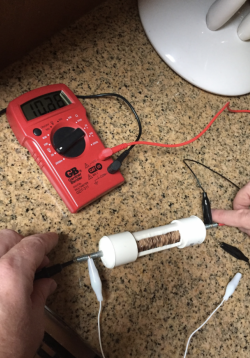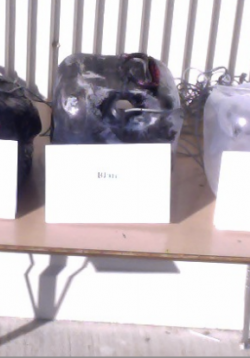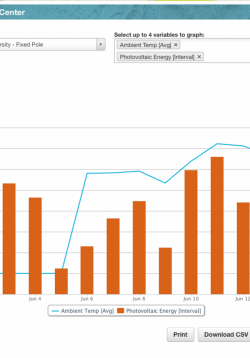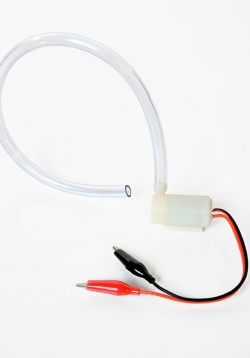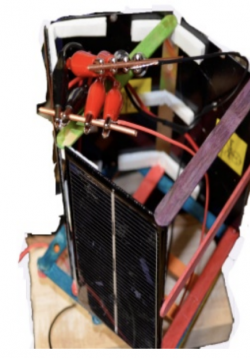Unit Plan: Understand E-Waste Through Battery Design
In this lesson students will further explore their understanding of energy, electricity, and basic circuits. Students will begin their exploration of batteries by questioning where batteries end up when we are done using them, making connections to e-waste...
Setting Up the Experiment - Solar Water Heating
Students will set up the experiment that they will use to determine the amount of energy from the sun that can be used to heat water and the variables that can help the exchange of heat most effectively. They will accomplish this through setting up simple...
Passive Solar Water Heating: Collecting and Reporting Data, Making Recommendations
Students will explore ways that the sun can be used to heat water and the variables involved in the efficiency of using the sun to heat water for use in homes or businesses. They will determine this through taking measurements of their solar water heaters...
A Simple Circuit
Students make a hypothesis about how a set of materials should be connected in order to make a motor spin. Through guided trial and error students are led to the idea of a circuit as the proper way to connect the materials in order to make the fan turn....
Making Observations and Recording Data for Solar Powered Water Pumping
Students use a solar module and water pump to test how quickly one cup of water can be pumped.
Solar Powered Water Pumping
Students use a solar module and other materials in conjunction with a water pump to test how quickly one cup of water can be pumped.
Designing a Faster Water Pump
Students use all their prior knowledge to design and construct a water pump that can pump 1 cup of water the fastest.
Circuit Analysis With Solar Energy: Measure the Power Consumed by Various Devices
Students will set up a simple circuit using a solar module and three small loads. They will then use a multimeter to measure the voltage across each load and the current through each circuit. Students will then calculate the power consumption and...
Using a Multimeter to Analyze a Solar Circuit: Measuring Current and Voltage—Calculating Power and Resistance
Students will set up a simple circuit using a multimeter and a load resistor to measure the voltage and current in the circuit. Students will learn to use a multimeter, learn how to calculate power and be introduced to Ohm’s Law. This activity provides a...
Solar Tracker Challenge
Students will build a simple circuit that can be used to track a light source. This circuit will be used as a springboard for discussion into the engineering design process, solar tracking, and basic electricity and circuits. The simple solar tracker...

